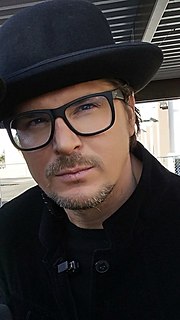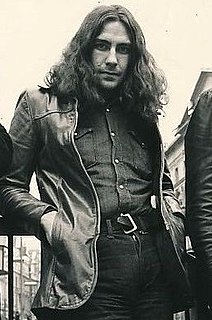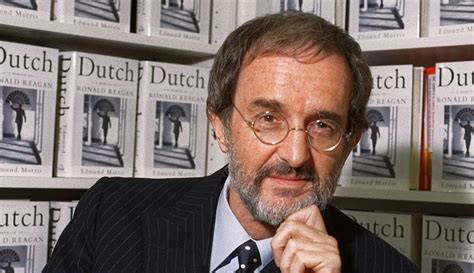A Quote by Cathy O'Neil
The Facebook algorithm designers chose to let us see what our friends are talking about. They chose to show us, in some sense, more of the same. And that is the design decision that they could have decided differently. They could have said, "We're going to show you stuff that you've probably never seen before." I think they probably optimized their algorithm to make the most amount of money, and that probably meant showing people stuff that they already sort of agreed with, or were more likely to agree with.
Related Quotes
Science, by itself, cannot supply us with an ethic. It can show us how to achieve a given end, and it may show us that some ends cannot be achieved. But among ends that can be achieved our choice must be decided by other than purely scientific considerations. If a man were to say, "I hate the human race, and I think it would be a good thing if it were exterminated," we could say, "Well, my dear sir, let us begin the process with you." But this is hardly argument, and no amount of science could prove such a man mistaken.
When I said that something was going to cost a certain amount of money, I actually knew what I was talking about. The biggest problem that we were having on the financing front was people with lots of money saying "you need more money to make this film [Moon]," and us saying "no this is the first feature film we want to do it at a budget where we sort of prove ourselves at the starting end of making feature films; we can do this for $5 million." That is where the convincing part between me and Stuart came, we had to convince people with money that we could do it for that budget.
We spent as much money as we could and got as little for it as people could make up their minds to give us. We were always more or less miserable, and most of our acquaintance were in the same condition. There was a gay fiction among us that we were constantly enjoying ourselves, and a skeleton truth that we never did. To the best of my belief, our case was in the last aspect a rather common one.
Most of them were murderers. But when I went there to talk, they were the nicest people. I did a reading. I said, "Thank you," and then they said to me, "Could you talk some more?" And I said, "Why?" and they answered, "Most of us are in solitary confinement, so the moment you finish talking, they take us back to our cells. We like hanging out here together."
It [The Esemblist] is also about the generation of audience members that are watching shows and listening to us at the same time; hopefully, in time, when they listen to our show and then go see a show, they'll realize even more what it takes to make a show, and they'll know even more about everybody on stage, rather than just people above the title of the show.
At a certain fork in the road of automatization, Europeans chose to have more time, and they work far less than we do and get much longer vacations. We chose to have more stuff, the stuff sold to us through those beckoning adjectives-bigger, better, faster: Jet Skis, extra cars, second homes, motor homes, towering slab TVs, if not the time to enjoy them or to enjoy less commodified pleasures.
I’m aware of the- the fact that people elsewhere in the world think differently from us. I can sort of see us, us Americans with their eyes. And not all that I see is- is attractive. I see an insular people who are- are insensitive to foreign sensibilities, who are lazy, obese, complacent and increasingly perplexed as to why we are losing our place in the world to people who are more dynamic than us and more disciplined
I'm definitely in the market for being uncool. There was some funny stuff, like the thing about making sure I show people that I have tattoos and cigarettes so that they know I'm badass. But really, I do have tattoos! And I do smoke cigarettes sometimes, and I can't change that. But I am not badass, by any means. I do some stuff that's tongue-in-cheek, and some stuff that's on the line. And it could be funny, it could be serious, and I never even know myself, because it could be funny that day, and the next day it's totally embarrassing.
Artists use frauds to make human beings seem more wonderful than they really are. Dancers show us human beings who move much more gracefully than human beings really move. Films and books and plays show us people talking much more entertainingly than people really talk, make paltry human enterprises seem important. Singers and musicians show us human beings making sounds far more lovely than human beings really make. Architects give us temples in which something marvelous is obviously going on. Actually, practically nothing is going on.

































